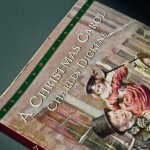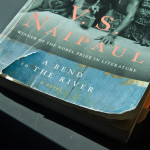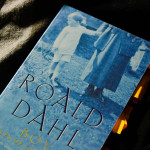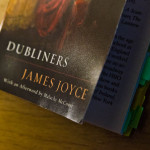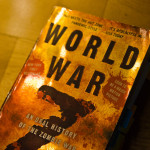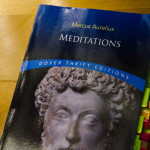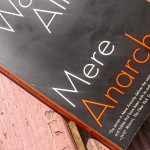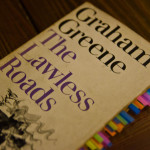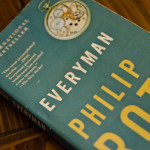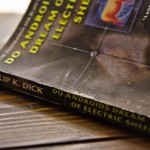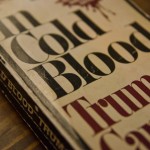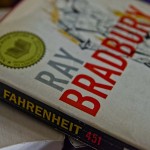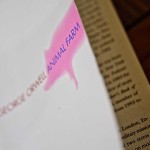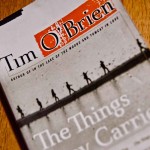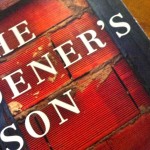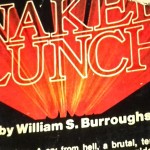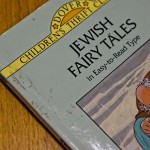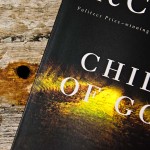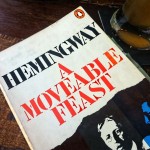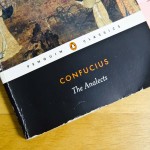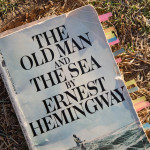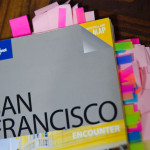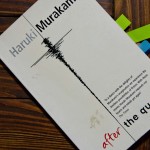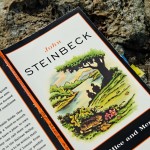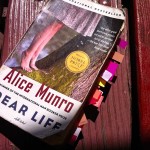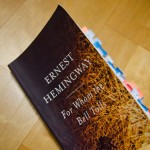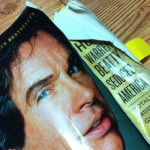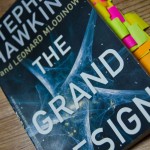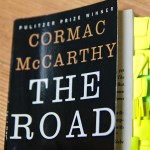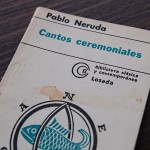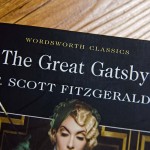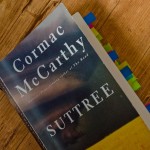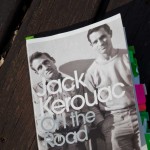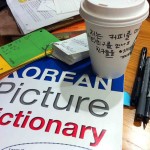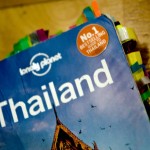
Category Archives: viajes


books 2016
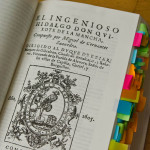
Cervantes Saavedra, Miguel de. Don Quijote De La Mancha. Madrid: Real Academia Española, 2015. Print. (First ed. 1605)
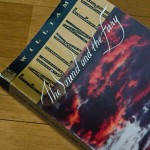
Faulkner, William. The Sound and The Fury. New York: Vintage International, 1990. Print. (1984 correction, first ed. 1929)
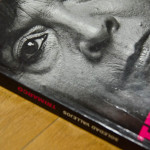
Vallejos, Soledad. Trimarco: la mujer que lucha por todas las mujeres. Argentina: Aguilar, 2013. Print.
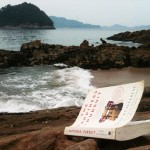
Guillebeau, Chris. The Happiness of Pursuit: Finding the Quest That Will Bring Purpose to Your Life. New York: Harmony Books, 2014. Print.
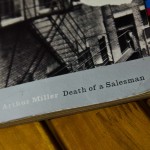
Miller, Arthur. Death of a Salesman. London, England: Penguin Classics, 2000. Print. [First ed. 1949.]
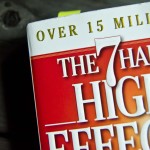
Covey, Stephen R. The 7 Habits of Highly Effective People: Restoring the Character Ethic. New York, N.Y.: Free Press, 2004. Print. (First ed. 1989).
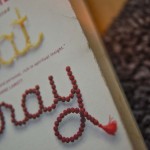
Gilbert, Elizabeth. Eat, Pray, Love: One Woman’s Search for Everything Across Italy, India and Indonesia. New York, N.Y.; Penguin, 2007. Print. (First ed. 2006)
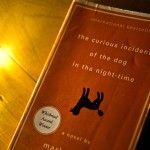
Haddon, Mark. the curious incident of the dog in the night-time. New York, NY: Vintage Books, 2004. Print. (First ed. 2003)
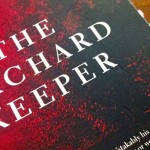
McCarthy, Cormac. The Orchard Keeper. New York, N.Y.: Vintage International, 1993. Print. (First ed. 1965).
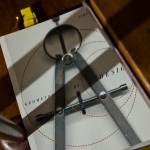
Elam, Kimberly. Geometry of Design: Studies in Proportion and Composition. New York: Princeton Architectural, 2001. Print.

Graysmith, Robert. Zodiac: The Shocking True Story of The Nation’s Most Bizarre Mass Murderer. New York, NY: Berkley, 2007.
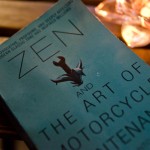
Pirsig, Robert M. Zen and the Art of Motorcycle Maintenance: An Inquiry into Values. New York: Harper Torch, 2006. Print.

Block, Bruce A. The Visual Story: Creating the Visual Structure of Film, TV and Digital Media. 2nd ed. Amsterdam: Focal/Elsevier, 2008. Print.
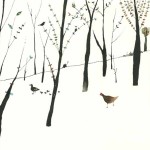
Hwang, Sŏn-mi, Chi-Young Kim, and Nomoco. The Hen Who Dreamed She Could Fly: A Novel. U.S.: Penguin Books, 2013. Print.
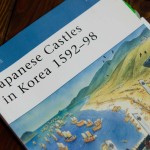
Turnbull, Stephen R., and Peter Dennis. Japanese Castles in Korea, 1592-98. Oxford: Osprey, 2007. Print.
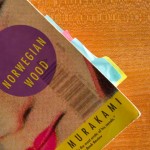
Haruki Murakami. 村上 春樹 Norwegian Wood. (translated by Jay Rubin) 2011. Vintage Open-Market Edition. Published in Japanese in 1987.
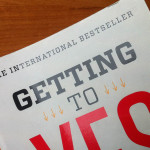
Fisher, Roger, William Ury, and Bruce Patton. Getting to Yes: Negotiating Agreement without Giving in. New York: Penguin, 2011. Print.

Lowell, Ross. Matters of Light & Depth: Creating Memorable Images for Video, Film & Stills through Lighting. Philadelphia: Broad Street, 1992. Print.
Cities of the Plain
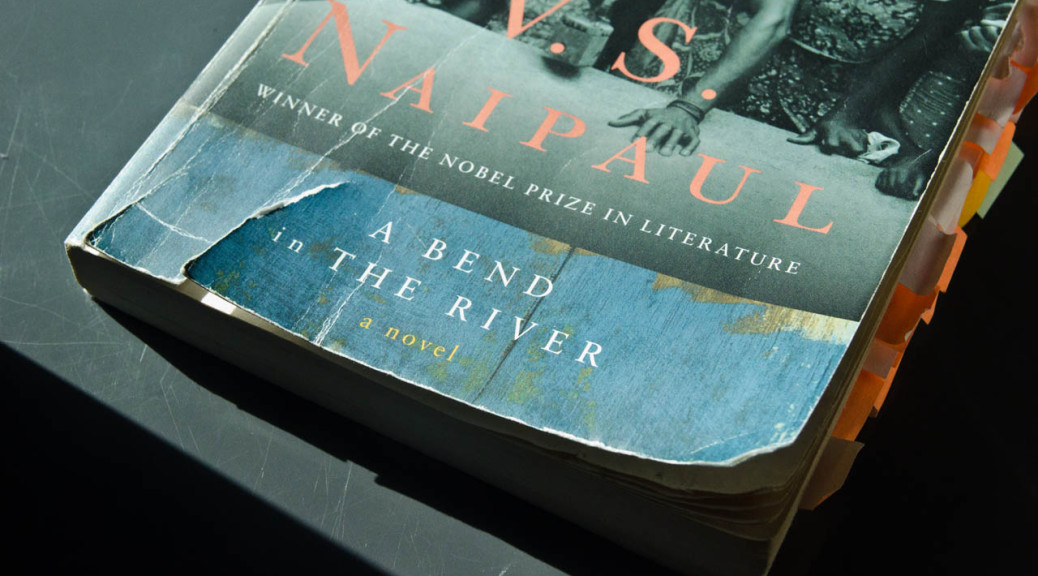
A Bend in The River
Naipaul, V. S. A Bend in the River. New York: Vintage International, 1989. Print. (First ed. 1979)
“The world is what it is; men who are nothing, who allow themselves to become nothing, have no place in it.” p. 3
“In the darkness of the river and forest you could be sure only of what you could see–made a noise–dipped a paddle in the water–you heard yourself as though you were another person. The river and the forest were like presences, and much more powerful than you.” p. 8
“Zabeth was a magician, and was known in our region as a magician. Her smell was he smell of her protecting ointments. Other women used perfumes and scents to attract; Zabeth’s ointments repelled and warned.” p. 10
“Without Europeans, I feel, all our past would have been washed away, like the scuff marks of fishermen on the beach outside our town.” p. 12
***”All that had happened in the past was washed away; there was always only the present. It was as though, as a result of some disturbance in the heavens, the early morning light was always receding into the darkness, and men lived in a perpetual dawn.” p. 12
“When things went wrong they had the consolations of religion. This wasn’t just a readiness to accept Fate; this was a quiet and profound conviction about the vanity of all human endeavour.” p. 16
“a relisher of life, a seeker after experience” p. 25
“I wondered about the nature of my aspirations, the very supports of my existence; and I began to feel that any life I might have anywhere–however rich and successful and better furnished–would only be a version of the life I lived now.” p. 42
**”Always, sailing up from the south, from beyond the bend in the river, were clumps of water hyacinths, dark floating islands on the dark river, bobbing over the rapids. It was as if rain and river were tearing away bush from the heart of the continent and floating it down to the ocean, incalculable miles away… Night and day the water hyacinth floated up from the south, seeding itself as if travelled.” p. 46
Eichhornia crassipes (water hyacinth)
“They said they were poor and wanted money to continue their studies. Some of these beggars were bold, coming straight to me and reciting their requests; the shy ones hung around until there was no one else in the shop. Only a few had bothered to prepare stories, and these stories were like Ferdinand’s: a father dead or far away, a mother in a village, an unprotected boy full of ambition… The guilelessness, the innocence that wasn’t innocence–I thought it could be traced back to Ferdinand, his interpretation of our relationship and his idea of what I could be used for.” p. 55
“The people here were malins the way a dog chasing a lizard was malins because they lived with the knowledge of men as prey.” p. 56
“Every carving, every mask, served a specific religious purpose, and could only be made once. Copies were copies; there was no magical feeling or power in them; and in such copies Father Huismans was not interested. He looked in masks and carvings for a religious quality; without that quality the things were dead and without beauty.” p. 61
“The first Roman hero, travelling to Italy to found his city, lands on the coast of Africa. The local queen falls in love with him, and it seems that the journey to Italy might be called off. But then the watching gods take a hand; and one of them says that the great Roman god might not approved of a settlement in Africa, of a mingling of peoples there, of treaties of union between Africans and Romans.” p. 62

Dido and Aeneas, from a Roman fresco, Pompeian Third Style (10 BC – 45 AD), Pompeii, Italy. Via Wikimedia.
See Dido and Aeneas
Read Aeneid by Virgil
“This is Zabeth’s world. This is the world to which she returns when she leaves my shop. But Zabeth’s world was living, and this was dead. That was the effect of those masks lying flat on the shelves, looking up not forest or sky but at the underside of other shelves. They were masks that had been laid low, in more than one way, and had lost their power.” p. 65
“wandering back to the food stalls: little oily heaps of fried flying ants (expensive, and sold by the spoonful) laid out on scraps of newspaper; hairy orange-coloured caterpillars with protuberant eyes wriggling in enamel basins; fat white grubs kept moist and soft in little bags of damp earth, five or six grubs to a bag–these grubs, absorbent in body and of neutral taste, being an all-purpose fatty food, sweet with sweet things, savory with savory things. These were all forest foods, but the villages had been cleaned out of them (grubs came from the heart of a pal tree); and no one wanted to go foraging too far in the forest.” p. 66
“While he lived, Father Huismans, collecting the things of Africa, had been thought a friend of Africa. But now that changed. It was felt that the collection was an affront to African religion… The masks themselves, crumbling n the slatted shelves, seemed to lose the religious power Father Huismans had taught me to see in them; without him, they simply became extravagant objects.” p. 84
“It wasn’t the ice cream that attracted Mahesh. It was the idea of the simple machine, or rather the idea of being the only man in the town to own such a machine… They are dazzled by the machines they import. That is part of their intelligence; but they soon start behaving as though they don’t just own the machines, but the patents as well; they would like to be the only men in the world with such magical instruments.” p. 90
“They didn’t see, these young men, that there was anything to build in their country. As far as they were concerned, it was all there already. They had only to take. They believed that, by being what they were, they had earned the right to take; and the higher the officer, the greater the crookedness–if that word had any meaning.” p. 91
“It seemed as easy as that, if you came late to the world and found ready-made those things that other countries and peoples had taken so long to arrive at–writing, printing, universities, books, knowledge. The rest of us had to take thngs in stages. I thought of my own family, Nazruddin, myself–we were so clogged by what the centuries had deposited in our minds and hearts. Ferdinand, starting from nothing, had with one step made himself free, and was ready to race ahead of us.” p. 102-103
“We lived on the same patch of earth; we looked at the same views. Yet to him the world was new and getting newer. For me that same world was drab, without possibilities.” p. 103
“”Would the honourable visitor state whether he feels that Africans have been depersonalized by Christianity?”
¶Indar did what he had done before. He restated the question. He said, “I suppose you are really asking whether Africa can be served by a religion which is not African. Is Islam an African religion? Do you feel that Africans have been depersonalized by that?”” p. 121
“You are men of the modern world. Do you need African religion? Or are you being sentimental about it? Are you nervous of losing it? Or do you feel you have to hold on to it just because it’s yours?” p. 122
Raymond “I find that the most difficult thing in prose narrative is linking one thing with the other. The link might just be a sentence, or even a word. It sums up what has gone before and prepares one for what is to come.” p. 136
To read A History of Rome by Theodor Mommsen
“There may be some parts of the world–dead countries, or secure and by-passed ones–where men can cherish the past and think of passing on furniture and china to their heirs. Men can do that perhaps in Sweden or Canada. Some peasant department of France full of half-wits in châteaux; some crumbling Indian palace-city, or some dead colonial town in a hopeless South American country. Everywhere else men are in movement, the world is in movement, and the past can only cause pain.” p. 141
“But I hadn’t understood to what extent our civilization had also been our prison. I hadn’t understood either to what extent we had been made by the place where we had grown up, made by Africa and the simple life of the coast, and how incapable we had become of understanding the outside world.” p. 142
“But this lady also thought that my education and background made me extraordinary,and I couldn’t fight the idea of my extraordinariness.
¶”An extraordinary man, a man of two worlds, needed an extraordinary job. And she suggested I become a diplomat.” p. 145
“there was the Edgware Road, where the shops and restaurants seemed continually to be changing hands; there were the shops and crowds of Oxford Street and Regent Street. The openness of Trafalgar Square gave me a lift, but it reminded me that I was almost at the end of my journey.” p. 146
“Now I saw differently. And I understood that London wasn’t simply a place that was there, as people say of mountains, but that it had been made by men, that men had given attention to details as minute as those camels.
¶I began to understand at the same time that my anguish about being a man adrift was false, that for me that dream of home and security was nothing more than a dream of isolation, anachronistic and stupid and very feeble. I belonged to myself alone.” p. 151
“We solace ourselves with that idea of the great men of our tribe, the Gandhi and the Nehru, and we castrate ourselves. ‘Here, take my manhood and invest it for me. Take my manhood and be a greater man yourself, for my sake!’ No! I want to be a man myself.” p. 152
“The job is thee, waiting. But it doesn’t exist for you or anyone else until you discover it, and you discover it because it’s for you and you alone.” p. 153
“These three people were in many ways alike–renegades, concerned with their personal beauty, finding in that beauty the easiest form of dignity.” p. 157
“Rustic manners, forest manners, in a setting not of the forest. But that was how, in our ancestral lands, we all began–the prayer may on the sand, then the marble floor of a mosque; the rituals and taboos of nomads, which transferred to the palace of a sultan or a maharaja, become the traditions of an aristocracy.” p. 161
“In spite of the corrupt physical ways our passion had begun to take, the photographs of Yvette that I preferred were the chastest. I was especially interested in those of her as a girl in Belgium, to whom the future was still a mystery.” p. 184
“The businessman bought at ten and was happy to get out at twelve; the mathematician saw his ten rise to eighteen, but didn’t sell because he wanted to double his ten to twenty.” p. 198
“Uganda was beautiful, fertile, easy, without poverty, and with high African traditions. It ought to have had a future, but the problem with Uganda was that it wasn’t big enough. The country was now too small for its tribal hatreds.” p. 200-201
Shoba and Mahesh “Acid on the face of the woman, the killing of the man–they were the standard family threats on these occasions,” p. 203
“”You can hire them, but you can’t buy them.” It was one of his sayings; it meant that stable relationships were not possible here, that there could only be day-to-day contracts between men, that in a crisis peace was something you had to buy afresh every day.” p. 210
“We came down slowly, leaving the upper light. Below the heavy cloud Africa showed as a dark-green, wet-looking land. You could see that it was barely dawn down there; in the forests and creeks it would still be quite dark.” p. 247
“The water hyacinths, “the new thing in the river,” beginning so far away, in the centre of the continent, bucked past in clumps and tangles and single vines, here almost at the end of their journey.” p. 249
“If there was a plan, these events had meaning. If there was law, these events had meaning. But there was no plan; there was no law; this was only make-believe, play, a waste of men’s time in the world. And how often here, even in the days of bush, it must have happened before, this game of warders and prisoners in which men could be destroyed for nothing. I remembered what Raymond used to say–about events being forgotten, lost, swallowed up.” p. 267
“The searchlight lit up the barge passengers, who, behind bars and wire guards, as yet scarcely seemed to understand that they were adrift. Then there were gunshots. The searchlight was turned off; the barge was no longer to be seen. The steamer started up again and moved without lights down the river, away from the area of battle. The air would have been full of moths and flying insects. The searchlight, while it was on, had shown thousands, white in the white light.
¶July 1977-August 1978” p. 278
The Crossing
McCarthy, Cormac.The Crossing. Kindle Edition. 1994.
“When their father was done he looked up. His eyes were very blue and very beautiful half hid away in the leathery seams of his face. As if there were something there that the hardness of the country had not been able to touch.” (location 231)
“In the jars dark liquids. Dried viscera. Liver, gall, kidneys. The inward parts of the beast who dreams of man and has so dreamt in running dreams a hundred thousand years and more. Dreams of that malignant lesser god come pale and naked and alien to slaughter all his clan and kin and rout them from their house. A god insatiable whom no ceding could appease nor any measure of blood.” (location 239)
“Echols one time told me that tryin to get the best of a wolf is like tryin to get the best of a kid. It aint that they’re smarter. It’s just that they aint got all that much else to think about.” (location 388)
“The lights of the town strewn across the prairie lay in that blue vale like a jeweled serpent incandescing in the evening cool.” (location 714)
“The snow on the north slopes so pale. Like spaces left for messages.” (location 721)
“Who can dream of God? This man did. In his dreams God was much occupied. Spoken to He did not answer. Called to did not hear. The man could see Him bent at his work. As if through a glass. Seated solely in the light of his own presence. Weaving the world. In his hands it flowed out of nothing and in his hands it vanished into nothing once again. Endlessly. Endlessly. So. Here was a God to study.” (location 2211)
“A God who seemed a slave to his own selfordinated duties.” (location 2213)
“A low door connected them and in the corner of the second room was a fireplace and a small altar with a Virgin of painted wood. A jar that held dead weeds. A drinking glass in the bottom of which lay a medallion of blackened wax. Against the wall stood a contrivance of poles lashed together into a frame and webbed with strips of rawhide with the hair on. It had the look of some rude agrarian implement but was in fact a bed. He blew out the match and walked out and stood in the door. Boyd was sitting on the stoop watching the girl. She was at the watering trough at the far end of the compound holding the horses while they drank. She and the two horses and the dog were surrounded by a semicircle of sitting dogs of every stripe and color but she paid them no mind. She stood very patiently with the horses while they drank. While they raised their dripping mouths and looked about and while they drank again. She did not touch the horses nor talk to them. She just waited while they drank and they drank for a long time.” (location 3231)
“Boyd put the last corner of the taco in his mouth and sat chewing. What do you reckon is in these tacos? he said. Cats. Cats? Sure. You see how the dog was lookin at you? They aint done it, said Boyd. You see any cats in the street? It’s too hot for cats in the street. You see any in the shade? There could be some laid up in the shade somewheres. How many cats have you seen anywheres? You wouldnt eat a cat, Boyd said. Even to get to watch me eat one. I might. No you wouldnt. I would if I was hungry enough. You aint that hungry. I was pretty hungry. Wasnt you? Yeah. I aint now. We aint eat no cats have we? No. Would you know it if we had? Yeah. You would too.” (location 3844)
“Si el mundo es ilusión la pérdida del mundo es ilusión también.” (location 4233)
****”He prodded the ashes with a stick. The few red coals that turned up in the fire’s black heart seemed secret and improbable. Like the eyes of things disturbed that had best been left alone.” (location 4876)
“along those unseen corridors writ in their blood a hundred thousand years.” (location 4924)
“The names of the cerros and the sierras and the deserts exist only on maps. We name them that we do not lose our way. Yet it was because the way was lost to us already that we have made those names. The world cannot be lost. We are the ones. And it is because these names and these coordinates are our own naming that they cannot save us. That they cannot find for us the way again.” (location 5815)
“He said that in any case the past was little more than a dream and its force in the world greatly exaggerated. For the world was made new each day and it was only men’s clinging to its vanished husks that could make of that world one husk more.” (location 6169)
“In their images they had thought to find some small immortality but oblivion cannot be appeased.” (location 6205)
an old dog “so scarred and broken that it might have been patched up out of parts of dogs by demented vivisectionists.” (location 6362)
Read February/March, 2014
All the Pretty Horses
McCarthy, Cormac. All the Pretty Horses. Kindle Edition. 1992.
“A long fan of light ran out from the east and the rising sun swelled blood red along the horizon.” (location 1285)
“I dont believe in signing on just till it quits suitin you.” (location 2323)
“and a thin white dog who seemed to have been awaiting just such an arrival came over and urinated for a long time against the rear tire of the truck and went back.” (location 2609)
“That all courage was a form of constancy. That it was always himself that the coward abandoned first. After this all other betrayals came easily.” (location 3508)
“as he rode he talked to it and told it things about the world that were true in his experience and he told it things he thought could be true to see how they would sound if they were said.” (location 3609)
“repeated what his father had once told him, that scared money cant win and a worried man cant love.” (location 3683)
“walls where the first lamps were lit, the narrow spires of smoke standing vertically into the windless dawn so still the village seemed to hang by threads from the darkness.” (location 3837)
“sleep he dreamt of horses and the horses in his dream moved gravely among the tilted stones like horses come upon an antique site where some ordering of the world had failed and if anything had been written on the stones the weathers had taken it away again and the horses were wary and moved with great circumspection carrying in their blood as they did the recollection of this and other places where horses once had been and would be again.” (location 4187)
“me not to chew on somethin that was eatin you.” (location 4355)
“They sat very quietly. The dead moon hung in the west and the long flat shapes of the nightclouds passed before it like a phantom fleet.” (location 4469)
—
Read June-July 1213

Chocolino and Yolo at the Beach
Gwangali, Busan, South Korea.
Cormac McCarthy reading list
To read

Fleeing Sodom and Gomorrah, Foster Bible. Via Wikimedia.
The Bible
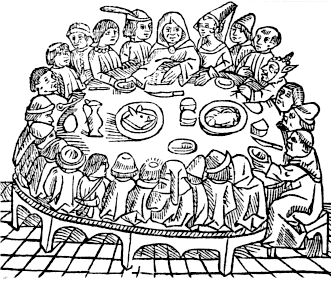
Canterbury Tales, Woodcut 1484. Via Wikimedia.
Geoffrey Chaucer: The Canterbury Tales, Troilus and Criseyde, The Book of the Duchess
Satan presiding at the Infernal Council. 1824. John Martin. Via Wikimedia.
John Milton: Paradise Lost Areopagitica
Shakespeare

Etching of Joseph O. Eaton’s portrait of Herman Melville. Via Wikimedia.
Herman Melville: Typee,Omoo,Moby-Dick
William Faulkner
Flannery O’Connor Wise Blood, The Violent Bear It Away, A Good Man Is Hard to Find
Thomas Pynchon: V., The Crying of Lot 49, Gravity’s Rainbow, Mason & Dixon
MacKinlay Kantor: Andersonville, If the South Had Won the Civil War
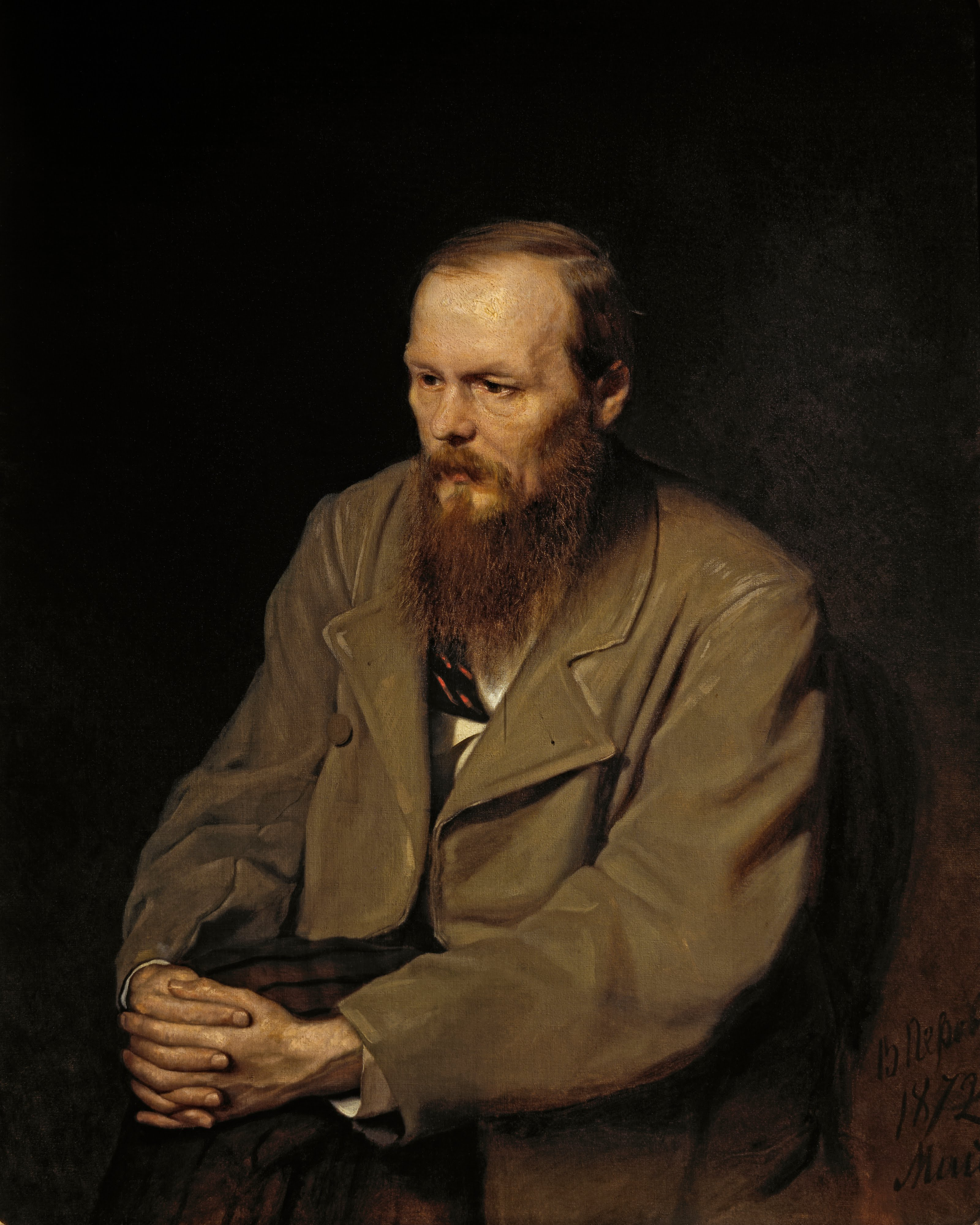
Portrait of Dostoyevsky (Ф.М.Достоевского) by Vasily Perov, 1872. Via Wikimedia.
Ф.М.Достоевского Fyodor Dostoevsky: The Idiot, Demons, The Brothers Karamazov, Crime and Punishment
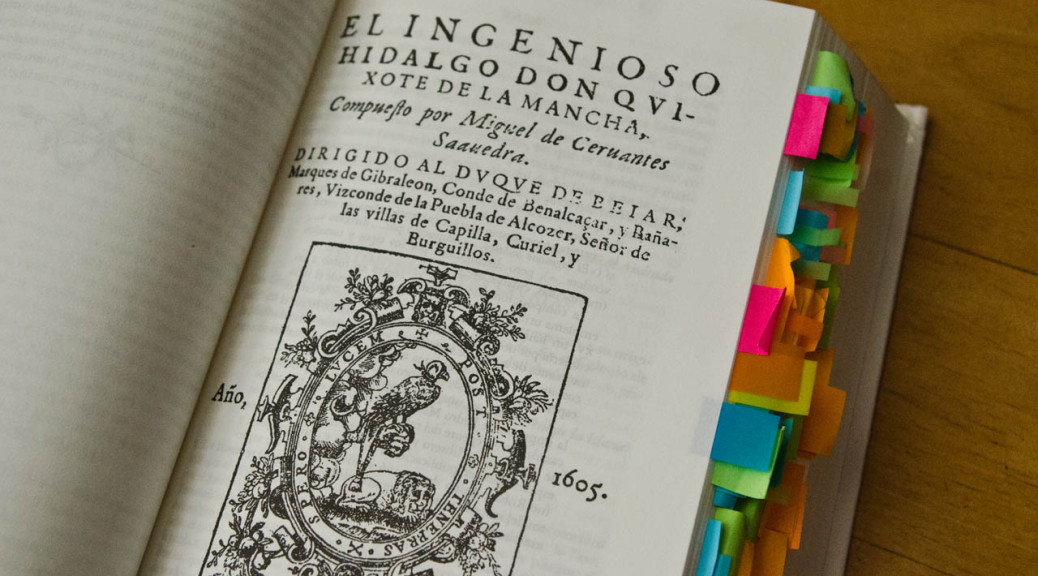
EL Ingenioso Hidalgo Don Qvixote de La Mancha (primera parte) I
Cervantes Saavedra, Miguel de. Don Quijote De La Mancha: Edición Conmemorativa IV Centenario Cervantes. Madrid: Real Academia Española, 2015. Print. (First ed. 1605)
Siglo de Oro
“Salieron para America cientos de ejemplares de la novela… Lo que no había conseguido Cervantes, lo lograba su criatura asentándose en el Nuevo Mundo.” (México -> Cartagena de Indias -> Portobelo, Panamá -> El Callao) p. xi
To Watch Дон Кихот Don Quixote (1957) Grigori Kozintsev.
José Ortega y Gasset Meditaciones del Quijote “su eje central es precisamente el diálogo,” p. xxi See “Yo soy yo y mi circunstancia”
“complejidad del sistema novelístico de Cervantes y sus estrategias para casar versímilmente su fábula mentirosa con la inteligencia de sus lectores están poderosamente condicionadas por la encrucijada en la que, como también Shakespeare y todos sus contemporáneos, se encuentra: la del solapamineto de la la galaxia Gutenberg con la pervivencia, muy vívida todavía, de formas de coexistencia y comunicaión arcaicas en las que sigue muy arraigada la oralidad.” p. p xxii
Quijote “Llegado, por el contrario, a Barcelona, ve en una imprenta cómo se corrigen las pruebas de una nueva edición de Quijote de Avellaneda, y ello le da pie para denostarlo.” p. xxiv
Olfato y tacto en Don Quijote p. xxvii

Primera edición conocida de Amadís de Gaula de Garci Rodríguez de Montalvo, impresa en Zaragoza por Jorge Coci, 1508. Via Wikimedia.

Portada de Los cinco libros del esforzado e invencible caballero Tirante el Blanco, primera traducción al castellano de Tirant lo Blanc, impresa por Diego de Gumiel. Via Wikimedia.
Tirante el Blanco
Tristán de Leonís
“Al final, termina por salirse con la suya. La ficción va contaminando lo vivido y la realidad se va gradualmente plegando a las excentricidades y fantasías de don Quijote. p. XXXV (Mario Vargas Llosa, Una novela para el siglo XXI)
“Los amigos del pueblo de don Quijote, tan adversos a las novelerías literarias que hacen una quema inquisitorial de su biblioteca, con el pretexto de curar a Alonso Quijano de su locura recurren a la ficción: urden y protagonizan representaciones para devolver al Caballero de la Triste Figura a la cordura y al mundo real. Pero, en verdad, consiguen lo contrario: que la ficción comience a devorar la realidad.” p. XXXVI (Mario Vargas Llosa, Una novela para el siglo XXI)
Ruta de Don Quijote
“El Quijote no cree que la justicia, el orden social, el progreso, sean funciones de la autoridad, sino obra del quehacer de individuos que, como sus modelos, los caballeros andantes, y él mismo, se hayan echado sobre los hombros la tarea que hacer menos injusto y más libre próspero el mundo en el que viven.” p. XL (Mario Vargas Llosa, Una novela para el siglo XXI)
“la Santa Hermandad, cuerpo de justicia en el mundo rural, de la que se tiene anuncios durante las correrías de don Quijote y Sancho, son mencionadas más bien como algo lejano, oscuro y peligroso.” p. XL
“España aparace como un espacio muchi más vasto, cohesionado en su diversidad geográfica y cultural y de unas inciertas fronteras que parecen definirse en función no de territorios y demarcaciones administrativas, sino religiosas: España termina en aquellos límites vagos, y concretamente marinos, donde comienzan los dominios del moro, el enemigo religioso.” p. XLII
“como ocurre con las obras maestras paradigmáticas… al igual que el Hamlet, o La divina comedia, o la Ilíada y la Odisea, ella evoluciona con el paso del tiempo y se recrea a sí misma en función de las estéticas y los valores que cada cultura privilegia, revelendo que es una verdadera caverna de Alí Babá, cuyos tesoros nunca se extienguen.” p. XLIII-XVLIV
To Read
Rayuela by Cortazar,
In Search of Lost Time by Marcel Proust
“Aprovechando lo que era un tópico de la novela de caballerías (muchas de ellas eran supuestos manuscritos encontrados en sitios exóticos y estrafalarios), Cervantes hizo de Cide Hamete Benengeli un dispositivo que introducía la ambigüedad y el juego como rasgos centrales de la estructura narrativa.” p. XLIV
—
Canto de Calíope en La Galatea
“Cervantes, que se vio imposibilitado de hacer efectivas las sumas recogidas, fue internado en la cárcel de Sevilla, donde pasó unos tres meses del año 1597.” p. LXX (Martín de Riquer, Cervantes y el “Quijote”)
“En 1613 aparecen las Novelas ejemplares; en 1614 el Viaje del Parnaso; en 1615 la Segunda parte del Quijote y las COmedia y entremeses; y en 1617, póstumamente, el Persiles y Sigismunda. O sea que la gran época de aparición de las obras de Cervantes, presciendiendo de la Primera parte del Quijote, corresponder a la etapa que va de los 66 a los 68 años del escritor.” p. LXXI (Martín de Riquer, Cervantes y el “Quijote”)
“Aunque Cervantes ha escrito estos versos en tono humurístico, no deja de haber en ellos cierta amargura de quien, sabiéndose un gran prosista, comprende que no puede compararse con los grandes poetas de su tiempo.” p. LXXIII (Martín de Riquer, Cervantes y el “Quijote”)
“Fue enterrado en el convento de las Trinitarias Descalzas de la calle de Cantarranas (hoy Lope de Vega), donde sin duda esposan todavía sys restos sin que haya posibilidad de identificarlos.” p. LXXVIII (Martín de Riquer, Cervantes y el “Quijote”)
“En el Quijote Cervantes recoge la experiencia de los recuerdos de su vida; en el Persiles recoge el fruto de sis lecturas de libros.” p. LXXIX (Martín de Riquer, Cervantes y el “Quijote”)
“El “caballero andante” existió, y todavía erraba por los caminos de Europa y de corte en corte en demanda de aventuras (justas, pasos de armas, torneos, batallas a todo trance) un siglo antes de que Cervantes se pusiera a escribir el Quijote. Y alrededor de estos caballeros existió una literatura que puede distribuirse en dos categorías: la biografía del caballero y la novela caballeresca. Como ejemplos de la primera categoría tenemos el Livre des faits du bon messire Jean le Maingre, dit Bouciquaut, el Livre des faits de Jacques de Lalaing y el Victorial, o biografía de don Pero Niño, y podriamos añadir el Libro del Passo Honroso… A la segunda categoría pertenecen determinadas novelas … Las catalanas Curial e Güelfa y Tirant lo Blanch y las francesas Jean de Saintré y el Roman de Jean de Paris… Basta señalar que la biografía de un caballero perfectamente histórico como fue Jacques de Lalaing, que realizó sus primeras hazañas en Vallodolid, ofrece gran similitud con la novela que tiene por protagonista al ficticio Jean de Saintré.. Este tipo de novelas a las que conviene dar el nombre de “novelas caballescas” en clara oposición a los “libros de caballerías”, fue comprendido por Cervantes, como atestigua su elogio del Tirant lo Blanch” p. LXXXIV (Martín de Riquer, Cervantes y el “Quijote”)
“El Quijote no es, como creyeron algunos románticos, una burla del heroísmo y del idealismo noble, sino la burla de unos libros que, por sus extremosas exageraciones y su falta de mesura, ridiculizaban lo heroico y lo ideal.” p. LXXXV (Martín de Riquer, Cervantes y el “Quijote”)
“Da la impresión que Certantes escribía sin leer su labor.” p. LXXXVIII (Martín de Riquer, Cervantes y el “Quijote”)
“Cervantes, cuando escribe la Segunda parte de la novela, tiene ya sesenta y ocho años, está en la miseria, ha padecido desdichas de toda suerte en la guerra y en el cautiverio, el honor de su hogar no ha sido siempre limpio ni ejemplar, ha recibido humillaciones y burlas en el cruel ambiente literario; y a pesar de todo ello, por encima de sus angustias, de sus estrecheces y de sus penas, el buen humor y el agudo donaire inundan las páginas del Quijote. p. XCIII (Martín de Riquer, Cervantes y el “Quijote”)
“la más desdichada de tales transposiciones fue que la supresión de unas páginas en que se narraba cómo Sancho Panza perdió a si jumento no llevó aneja la eliminación de la referencias al escudero montado en el asno” p. CII (Francisco Rico, Nota al texto)
“endecasílabo) El ingenioso hidalgo de la Mancha.” p. CIV (Francisco Rico, Nota al texto)
“Téngase en cuenta que los libros se ponían entonces a la venta “en papel”, es decir, como un conjunto de pliegos sin encuadernar, y así serían los Quijotes que Cervantes tuviera a mano a principios de 1605.” p. CXI (Francisco Rico, Nota al texto)
“Tras un corto período de gran éxito, la novela sufre un eclipse desde 167 hasta que la devuelve al mercado la edición de Madrid, 1636-1637, cuatro o conco veces reimpresa en la Corte en los decenios siguientes,” p. CXII (Francisco Rico, Nota al texto)
“vacilaciones presentes en los escritos de puño y letra de Cervantes.” mesmo~mismo, cuasi~casi, fee~fe, escrebir~escribir invidia~envidia, sospiro~suspiro, asconder~esconder, húmido~húmedo, imágines~imágenes, proprio~propio, recebir~recibir, esaminador~examinador, eceto~exepto, agora~ahora, ansí~así, güésped~huésped, deste~de este, della~de ella. CXV-CXVI (Francisco Rico, Nota al texto)
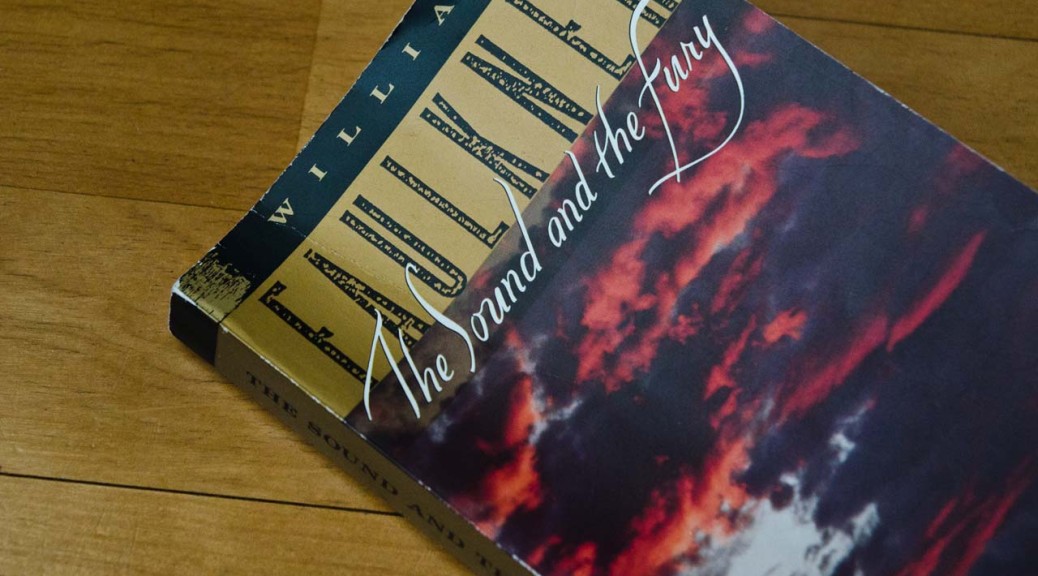
The Sound and The Fury
Faulkner, William. The Sound and The Fury. New York: Vintage International, 1990. Print. (1984 correction, first ed. 1929)
Luster “If you don’t hush, you know what I going to do. I going to eat that cake all up. Eat them candles, too. Eat all them thirty three candles. Come on, les go down to the branch. I got to find my quarter.” p. 4
“”Where’d you get a quarter, boy. Find it in white folks’ pocket while they aint looking.”
“Got it at the getting place.” Luster said. “Plenty more where that one come from. Only I got to find that one. Is you all found it yet.”
“I aint studying no quarter. I got my own business to tend to.”” p. 14
“The bones rounded out of the ditch, where the dark vines were in the black ditch, into the moonlight, like some of the shapes had stopped.” p. 33-34
“Caddy got the box and set it on the floor and opened it. It was full of stars. When I was still, they were still. When I moved, they glinted and sparkled. I hushed.” p. 41
Et ego in arcadia (Et in arcadia ego)p. 44
“And one evening, when they was about a dozen them bluegum chillen running around the place, he never come home. Possum hunters found him in the woods, et clean. And you know who et him. Them bluegum chillen did.” p. 69
“You’ve been running a long time, not to’ve got any further off than mealtime, Jason said.” p. 71
“Then he went to the window and looked out. He came back and took my arm. Here she come, he said. Be quiet, now. We went to the window and looked out. It came out of Quentin’s window and climbed across into the tree. We watched the tree shaking. The shaking went down the tree, then it came out and we watch it go away across the grass. Then we couldn’t see it.” p. 74
“I give it to you not that you may remember time, but that you might forget it now and then for a moment and not spend all your breath trying to conquer it. Because no battle is ever won he said. They are not even fought. The field only reveals to man his own folly and despair, and victory is an illusion of philosophers and fools.” p. 76
“I passed the jeweler’s window, but I looked away in time. At the corner two bootblacks caught me, one on either side, shrill and raucous, like blackbirds. I gave the cigar to one of them, and the other one a nickel. Then they let me alone. The one with the cigar was trying to sell it to the other for the nickel.” p. 83
“He was going bald. There was a glass in his eye–a metal tube screwed into his face. I went in.
The place was full of ticking, like crickets in September grass, and I could hear a big clock on the wall above his head. He looked up, his eye big and blurred and rushing beyong the glass.” p. 83
“There were about a dozen watches in the window, a dozen different hours and each with the same assertive and contradictiory assurance that mine had, without any hands at all. Contradiction one another.” p. 85
“And all that day, while the train wound through rushing gaps and along ledges where movement was only a laboring sound of the exhaust and groaning wheels and the eternal mountains stood fading into the thick sky,” p. 88
“The ship went through the bridge, moving under bare poles like a ghost in broad day, with three gulls hovering above the stern like toys on invisible wires.” p. 89-90
***”It twinkled and glinted, like breathing, the float slow like a breathing too, and debris half submerged, healing out to the sea and the caverns and the grottoes of the sea.” p. 90
“You can feel noon. I wonder if even miners in the bowels of the earth.” p. 104
“Father said that a man is the sum of his misfortunes. One day you’d think misfortune would get tired, but then time is your misfortune Father said.” p. 104
“I could still see the smoke stack. That’s where the water would be, healing out to the sea and the peaceful grottoes.” p. 112
“Only our country was not like this country. There was something about just walking through it. A kind of still and violent fecundity that satisfied even bread-hunger like. Flowing around you, not brooding and nursing every niggard stone.” p. 113
“The bridge was of gray stone, lichened, dappled with slow moisture where the fungus crept. Beneath it the water was clear and still in the shadow, whispering and clucking about the stone in fading swirls of spinning sky.” p. 115
“The arrow increased without motion, then in a quick swirl the trout lipped a fly beneath the surface with that sort of gigantic delicacy of an elephant picking up a peanut.” p. 116-117
***”Then they talked about what they would do with twenty-five dollars. They all talked at once, their voices insistent and contradictory and impatient, making of unreality a possibility, then a probability, then an incontrovertible fact, as people will when their desires become words.” p. 117
“He leaned on the rail, looking down at the trout which he had already spent, and suddenly the acrimony, the conflict, was gone from their voices, as if to them too it was as though he had captured the fish and bought his horse and wagon, they too partaking of that adult trait of being convinced of anything by an assumption of silent superiority.” p. 118
“The street turned again. I could see the white cupola, the round stupid assertion of the clock.” p. 124
“took up the coins and found two coppers in her apron and gave them to me. I handed them to the little girl. Her fingers closed about them, damp and hot, like worms.” p. 126-127
“She looked at me. She chewed quietly and steadily; at regular intervals a small distension passed smoothly down her throat. I opened my package and gave her one of the buns. “Good bye,” I said. p. 129
“Them furriners. I cant tell one from another. You might take her across the tracks where they live, and maybe somebody’ll claim her.” p. 130
“I don’t know
outside the gray light the shadows of things like dead
things in stagnant water” p. 157
“I went to the diningroom. Quentin was sitting with her head bent. She had painted her face again. Her nose looked like a porcelain insulator.” p. 257
“She had been a big woman once but now her skeleton rose, draped loosely in unpadded skin that tightened again upon a paunch almost dropsical, as though muscle and tissue had been courage or fortitude which the days or the years had consumed until only the indomitable skeleton was left rising like a ruin or a landmark above the somnolent and impervious guts, and above that the collapsed face that gave the impression of the bones themselves being outside the flesh, lifted into the driving day with an expression at once fatalistic and of a child’s astonished disappointment, until she turned and entered the house again and closed the door.” p. 265-266
“saw the old woman in her quilted dressing gown at the head of the stairs, calling her name with machinelike regularity.” p. 270
“It was not the bottle which Mrs Compson wanted, however, and clutching it by the neck like a dead hen Dilsey went to the foot of the stairs and looked upward.” p. 270
“She made no further move, but though she could not see her save as a blobby shape without depth, Mrs Compson knew that she had lowered her face a little and that she stood now like cows do in the rain, holding the empty water bottle by its neck.” p. 272
“The window was open. A pear tree grew there, close against the house. It was in bloom and the branches scraped and rasped against the house and the myriad air, driving in the window, brought into the room the forlon scent of the blossoms.” p.
“The Ben wailed again, hopeless and prolonged. It was nothing. Just sound. It might have been all time and injustice and sorrow become vocal for an instant by a conjunction of planets.” p. 288
“Two tears slid down her fallen cheeks, in and out of the myriad coruscations of immolation and abnegation and time.” p. 295
“But he bellowed slowly, abjectly, without tears; the grave hopeless sound of all voiceless misery under the sun.” p. 316
To read Absalom, Absalom! (1936), A Fable (1954), As I lay Dying (1930)
To re-read The Sound and the Fury.
Read the poem Kubla Khan (1816) by Samuel Taylor Coleridge
In Xanadu did Kubla Khan
A stately pleasure-dome decree :
Where Alph, the sacred river, ran
Through caverns measureless to man
Down to a sunless sea.

